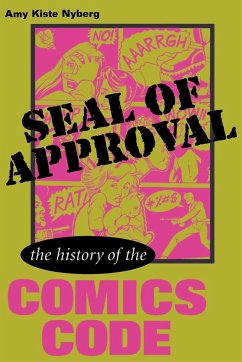For most of the past century the content of comic books has been governed by an industry self-regulatory code adopted by publishers in 1954 in response to public and governmental pressure. This book examines why comic books were the subject of controversy, beginning with objections that surfaced shortly after the introduction of modern comic books in the mid-1930s, when parents and teachers accused comic books of contaminating children¿s culture and luring children away from more appropriate reading material. The legacy of the comics code is that it continues to define the comic book medium as essentially juvenile literature. While the code offers protection against those who attack the media (and not just comic books), it also reaffirms the public perception of comic books as children¿s fare. As a result, the comic book has yet to achieve legitimation as a unique form of expression that blends words and pictures in a way that no other medium can duplicate. In tracing the evoluti
Hinweis: Dieser Artikel kann nur an eine deutsche Lieferadresse ausgeliefert werden.
Hinweis: Dieser Artikel kann nur an eine deutsche Lieferadresse ausgeliefert werden.








